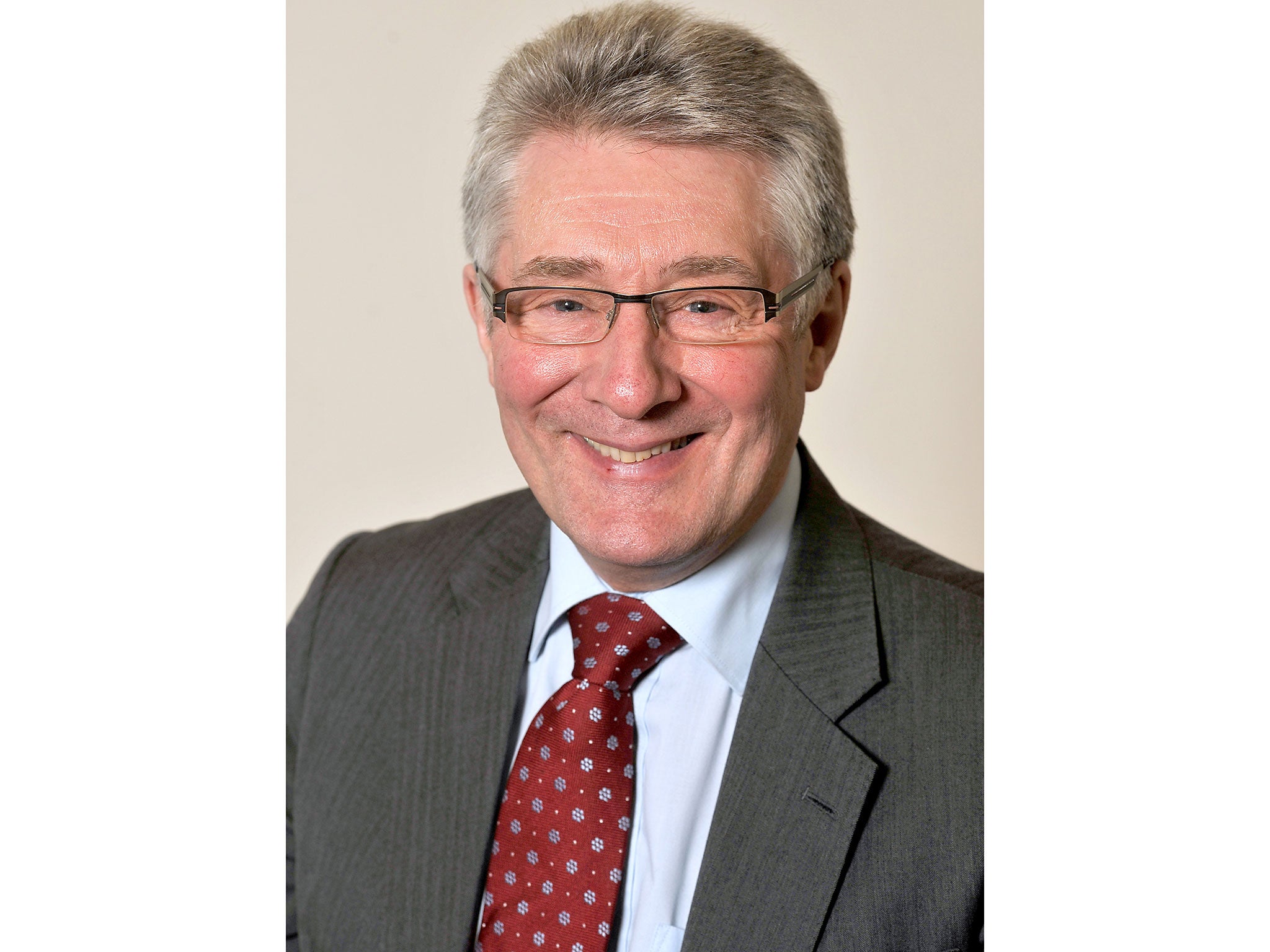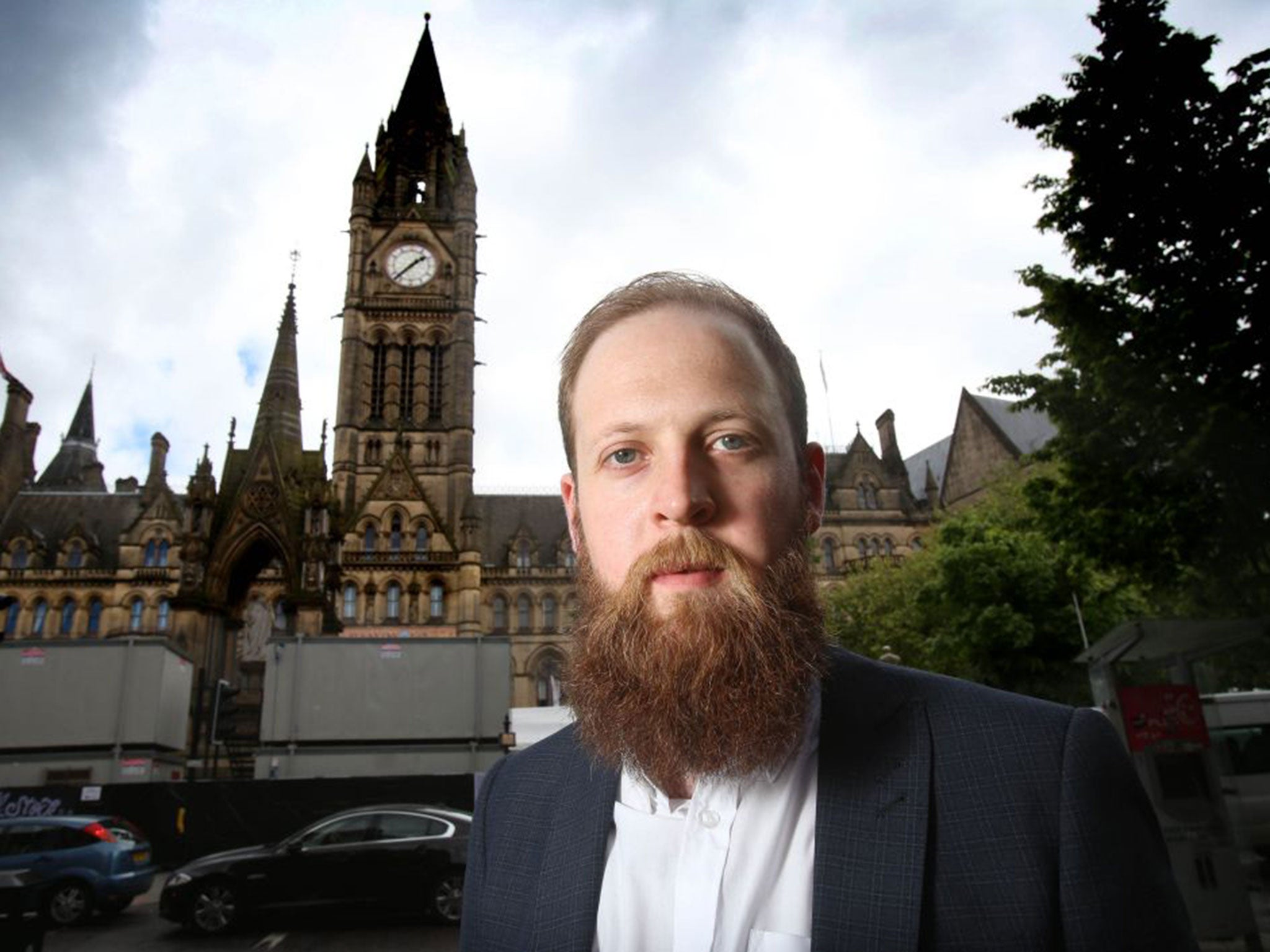Manchester Mayor elected - despite not being voted in by the public
Mancunians tell Jamie Merrill that appointing a city leader behind closed doors is not their idea of local democracy

Your support helps us to tell the story
From reproductive rights to climate change to Big Tech, The Independent is on the ground when the story is developing. Whether it's investigating the financials of Elon Musk's pro-Trump PAC or producing our latest documentary, 'The A Word', which shines a light on the American women fighting for reproductive rights, we know how important it is to parse out the facts from the messaging.
At such a critical moment in US history, we need reporters on the ground. Your donation allows us to keep sending journalists to speak to both sides of the story.
The Independent is trusted by Americans across the entire political spectrum. And unlike many other quality news outlets, we choose not to lock Americans out of our reporting and analysis with paywalls. We believe quality journalism should be available to everyone, paid for by those who can afford it.
Your support makes all the difference.Kris McBurnie seems to speak for many of the voters out and about in central Manchester. “I had no idea we were getting a mayor,” he said. “And I certainly didn’t know he was being appointed today by the council. I would have assumed we would get a chance to vote on it.”
Like many of the shoppers and office workers bustling through the city, the 27-year-old financial services worker is not against the idea of more devolution for the area or even an elected mayor; it’s just that he has never heard of Tony Lloyd, the man who would be anointed by civic leaders later that day to lead the 2.7 million residents of Greater Manchester. There were no hustings or public debates.

Mr Lloyd, who is currently the Greater Manchester Police and Crime Commissioner, will now control an £8bn budget and lead a new experiment in city governance. However, there was not a ballot box in sight during his appointment – instead the decision was made by a “selection panel” of 10 civic leaders in a closed-door meeting that has already been described as an “undemocratic stitch-up”. He will be replaced by an elected mayor in 2017, but that has not stopped residents and governance experts raising objections.
Mr McBurnie did not “understand” why there was not a vote. Standing outside Manchester town hall, he said: “We’ve just had an election, but for some reason we’ve been excluded from this one.”
Others agree, including pensioner Denise Pover, who is waiting for friends nearby. “It’s such as terrible shame as they’ve done 75 per cent of the work by giving us devolution, but they have failed on the democracy part. I think it’s diabolical.”
It is a fortuitous outcome for Mr Lloyd, who was set to lose his job as Police and Crime Commissioner with the introduction of an elected mayor in just over two years’ time. Even if there had been a vote, it would not have been gripping political drama because his only rival was fellow Labour veteran Lord Smith, leader of Wigan Council. Both men are close to Sir Richard Leese, who oversaw the selection, and Sir Howard Bernstein, the leader and chief executive of Manchester City Council. Leese and Bernstein have dominated Manchester politics for a political generation.
My Lloyd’s selection did not even take place in the Manchester town hall where his office will now be based; instead he was selected at a low-key meeting of the Greater Manchester Combine Authority (GMCA) held 15 miles out of the city at the stadium of Leigh Centurions rugby league club.
The plan was set in motion in November when an extra £1bn in funding was given to the region. It was given renewed energy by this week’s Queen’s Speech which promised measures to help build a “Northern Powerhouse” and more devolution for English cities.
Council sources are keen to stress that Mr Lloyd is only an interim leader until devolution legislation is put before Parliament in time for the 2017 deadline. They also add that he has no executive power and will be “constrained” by the leaders of the GMCA, which includes the leaders of Bolton, Bury, Manchester, Oldham, Rochdale, Salford, Stockport, Tameside, Trafford and Wigan.
Back in the city centre, shoppers Chris Taylor, 47, and Nicola Thomas, 36, are among those unimpressed by the process. “I had no idea they were appointing someone today,” said Mr Taylor, who prides himself in following local politics. “There’s nothing in the local paper today. I suppose my first reaction is that it’s bloody outrageous.”
His partner, Nicola, pointed out that Manchester voted against introducing a directly elected mayor in 2012. At the Arndale Centre, travel agency worker Lauren McEwan, 25, is among those worried that the anointment will weaken support for local democracy. “I’m already worried that politicians don’t keep their promises as it is, so how can we hold them to account if we don’t even get a chance to vote for them,” she said.
Last night Mr Lloyd admitted to The Independent that he needed to “work hard to ensure the public views the process as legitimate”. Quietly some local councillors admit the situation is not ideal but point to the necessity of introducing a mayor to meet Chancellor George Osborne’s demand for an elected mayor to precede devolved powers.
But Professor Karel Williams from the Manchester Business School called the process an “undemocratic stitch-up”.
“The appointment of an interim mayor is not only disrespectful to the people of Manchester who voted no to a directly elected mayor in 2012, but it is also bad for local democracy,” he said.
“I’m in favour of devolution but it needs to be done in a tidy way. Instead we’ve had two candidates that nobody knows who haven’t debated and haven’t given interviews. They have no platform.”
Profile: Manchester's Mayor
Tony Lloyd is a North-west Labour Party veteran. He was MP for Stretford from 1983 then, with boundary changes in 1997, became MP for Manchester Central until 2012, when he stood down to become Police and Crime Commissioner.
Sources in his camp say he is keen to use the role to provide a “strong voice” for the city and to “sell devolution” to the public.
A former Foreign Office minister in the Blair government, he hasn’t announced whether he will run for election in 2017.
Join our commenting forum
Join thought-provoking conversations, follow other Independent readers and see their replies
Comments